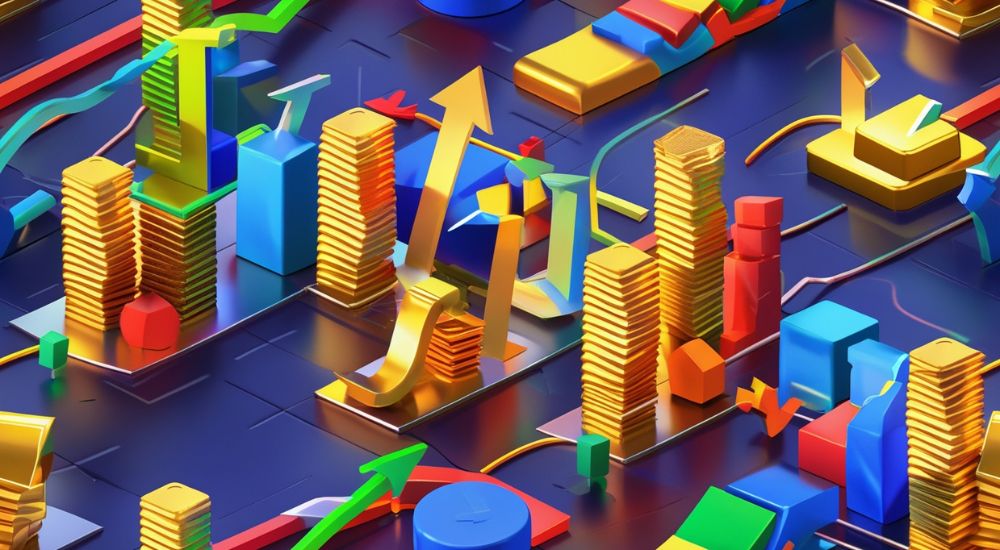We hear the word “inflation” a lot in the news, especially when prices go up. But what is inflation, and how does it change the money you spend, save, and invest for the long term?
It’s important to know about inflation whether you’re new to finance or have been investing for a long time. It can lower your buying power, change how the market works, and have an effect on your financial goals without you even knowing it.
We’ll explain what inflation really is, what causes it, how it affects your wallet, and most importantly, how you can protect yourself in this post. This is the best guide to inflation in today’s economy. It uses simple language, real-world examples, and useful tips.
Table of Contents
💡 What Is Inflation? 📈
Inflation is the rate at which prices for goods and services go up over time, which means that your money doesn’t buy as much.
That’s inflation in action if a chocolate bar cost ₹20 last year and ₹25 today.
Key Point:
Your money buys less when inflation goes up.
Indicators like these are often used to measure inflation:
- CPI, or Consumer Price Index
- WPI, or Wholesale Price Index
- The Producer Price Index (PPI)
🔍 What Causes Inflation?
There are a number of things that can cause inflation, and they often work together:
1. Demand-Pull Inflation
There is too much demand and not enough supply. For instance, when demand goes up, housing prices go up.
2. Inflation caused by rising costs
Companies pass on the cost to customers when the cost of production goes up, like when oil prices go up.
3. Inflation of money
When central banks print too much money, it loses value. Hyperinflation in Zimbabwe is a well-known example.
📊 Types of Inflation Explained
| Type | Description | Example |
|---|---|---|
| Creeping Inflation | Mild, steady increase in prices (1–3%) | Common in stable economies |
| Walking Inflation | Noticeable rise (3–10%) | Developing countries often face this |
| Galloping Inflation | Fast, double-digit inflation | Ruins purchasing power quickly |
| Hyperinflation | 50%+ per month! | Venezuela or Zimbabwe |
| Deflation | Prices fall—sounds good? It’s not always. | Leads to job cuts and recession |
💸 How Inflation Affects Your Money
1. Savings lose their value
If your bank savings earn 4% interest but prices go up by 6%, you are losing money in real terms.
2. The cost of living is going up
Over time, everything gets more expensive, from gas to food to rent.
3. Erodes 📉 Income that doesn’t change
People on fixed incomes, like retirees and pensioners, feel it the most.
4. Paying off debt is easier
Inflation can lower the real value of debt, which is good for borrowers more than lenders.
📉📈 Inflation and the Stock Market
Inflation influences:
- Company Profits: Higher costs cut into profits.
- Stock Prices: When inflation is high, interest rates often go up, which lowers stock prices.
- Investor Sentiment: The market is getting more volatile.
But some stocks do better when prices go up, like:
- Food, healthcare, and other basic goods
- Things like gold and oil are commodities.
- Real estate investment trusts (REITs)
Check out Stock Market Fundamentals for Long-Term Wealth to learn more about how markets work.
🛡️ How to Protect Your Wealth from Inflation
1. Put money into stocks
In the past, stocks have done better than inflation over time.
2. Real Assets
Gold, real estate, and other goods keep their value or even go up.
3. Bonds that are linked to inflation
Some government bonds are meant to keep up with inflation, like U.S. TIPS or Indian Inflation Indexed Bonds.
4. Diversification
Don’t put all your eggs in one place. Spread your risk across different types of assets.
Want to start putting money into things? These 10 steps will help you invest in stocks even when inflation is on the rise.
🌍 Real-World Examples of Inflation
In the US in 2022, the CPI hit 9.1%, the highest level in 40 years.
India (2020–2023): Problems in the supply chain caused fuel prices to rise.
In 2019, Venezuela’s annual inflation rate reached over 10,000,000%.
📌 Lesson: Be ready for inflation to either go up slowly and steadily or get out of hand.

✅ Conclusion
Inflation is a quiet thief that slowly takes your money’s value away.
But knowing things gives you power. You can stay ahead of the curve by learning what inflation is, how it works, and how to fight it with smart investing.
Keep learning, putting money into things, and staying up to date.
📌 Disclaimer: This blog post is for informational purposes only and does not constitute financial advice. Readers should do their own research or consult a certified financial advisor before making any investment decisions.
❓ FAQs About Inflation
1. Is inflation always bad?
Not always. A little bit of inflation is good for the economy, but a lot of inflation is bad.
2. How is inflation measured?
With indexes like the CPI, WPI, and PPI that keep track of price changes.
3. Can inflation help investors?
Yes, some assets, like stocks, commodities, and real estate, can do better than inflation over time.
4. Should I stop saving during inflation?
No, but move your savings to investments that pay more interest or are protected from inflation.
5. How often does inflation change?
Monthly or yearly, depending on when the country’s economic data comes out.

